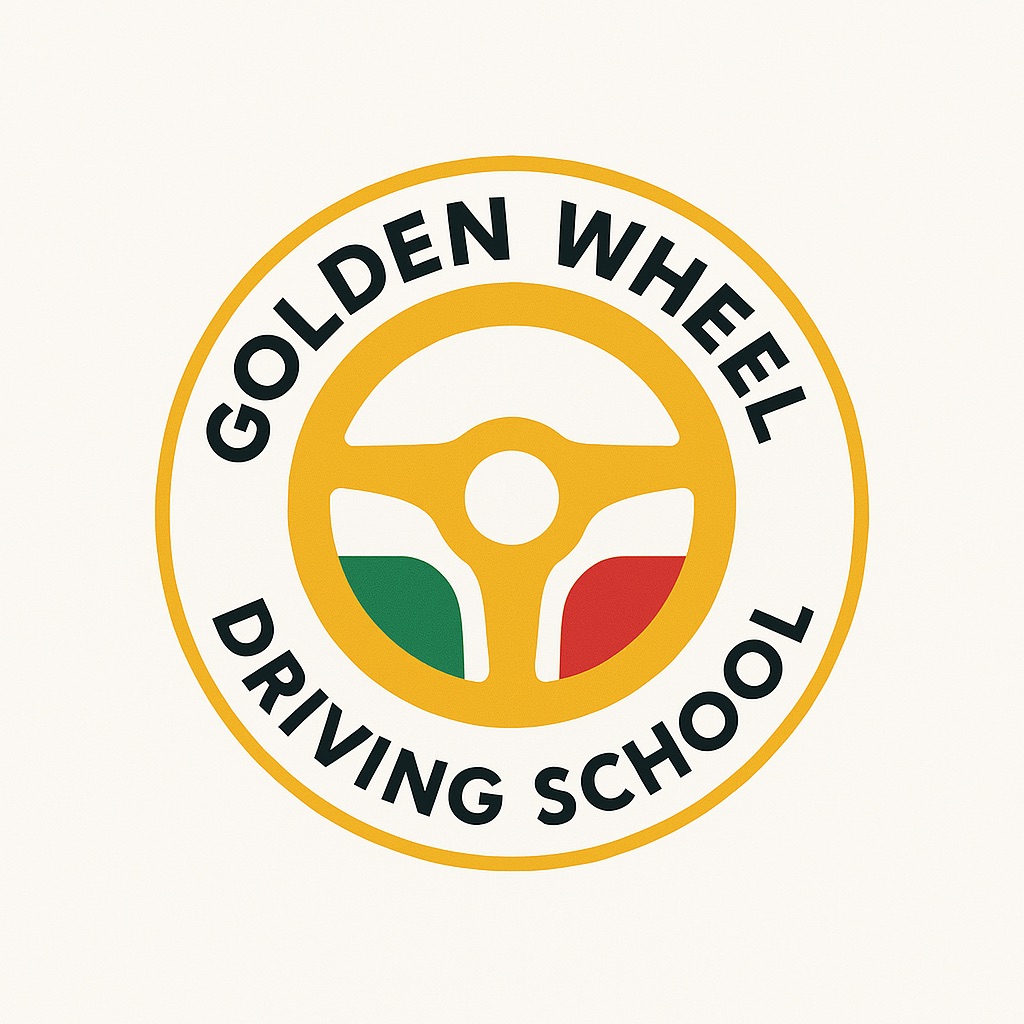Greetings! Are you ready to embark on the exciting journey of becoming a licensed driver? Look no further, because in this comprehensive guide, I will walk you through the necessary steps and requirements to successfully pass your driver’s education program and prepare you for the road ahead.
Driver’s education is an essential step in obtaining your driver’s license, whether you’re a teenager or an adult. It equips you with the knowledge, skills, and confidence needed to navigate the roads safely. From choosing the right driving school to acing your road test, I’ll cover everything you need to know.
At Golden Wheel Driving School, located at 75 Broadway, Elmwood Park, NJ 07407, we understand the importance of driver’s education. With experienced instructors and a comprehensive curriculum, we are committed to providing you with the highest quality education and training. Contact us at 201-797-5858 to enroll in our driver’s education program today!
Key Takeaways:
- Driver’s education is a prerequisite for obtaining a driver’s license.
- Choosing a reputable driving school is crucial for a comprehensive education.
- Ensure you meet the eligibility requirements and prerequisites before enrolling.
- Classroom instruction covers traffic laws, road signs, and defensive driving techniques.
- Behind-the-wheel training allows you to apply classroom knowledge in real-world situations.
Choosing a Driving School
When it comes to driver’s education, selecting the right driving school is of utmost importance. A reputable driving school not only equips you with the necessary skills to become a safe and responsible driver but also sets the foundation for a lifetime of confident driving.
One such trusted driving school is Golden Wheel Driving School, located at 75 Broadway, Elmwood Park, NJ 07407. With over a decade of experience in providing top-quality driver’s education, Golden Wheel Driving School stands out as a reliable choice for aspiring drivers.
Factors to Consider
Before making your decision, it’s essential to consider several factors:
- Reputation: Check the driving school’s reputation in the community. Read reviews and testimonials from previous students to gauge their experiences and satisfaction levels.
- Experience: Look for a driving school with a proven track record. Consider how long they have been in operation and their expertise in delivering comprehensive driver’s education.
- Curriculum: Ensure that the driving school offers a comprehensive curriculum that covers all critical aspects of driver’s education, from traffic laws to defensive driving techniques.
- Instructors: Qualified and experienced instructors play a vital role in your learning journey. Check if the driving school employs certified instructors who are skilled in teaching and have a patient and supportive demeanor.
- Cost: Consider the cost of the driving school’s program and compare it with other reputable options in your area. Keep in mind that the quality of education is often a worthwhile investment.
- Scheduling: Look for driving schools that offer flexible scheduling options to accommodate your busy lifestyle. You may need a school that offers evening or weekend classes to fit your availability.
- Behind-the-Wheel Training: Verify if the driving school provides behind-the-wheel training, as this hands-on experience is crucial for developing practical driving skills.
By considering these factors and doing thorough research, you can make an informed decision when choosing a driving school that best meets your needs and aspirations.
Golden Wheel Driving School at a Glance
| Founded | Location | Phone Number | Services Offered |
|---|---|---|---|
| Over 10 years ago | 75 Broadway, Elmwood Park, NJ 07407 | 201-797-5858 |
|
Quote
“At Golden Wheel Driving School, we pride ourselves on providing students with a safe and supportive environment to learn and develop their driving skills. Our experienced instructors are committed to equipping you with the knowledge and confidence needed to become a responsible driver for life. Join us on this exciting journey towards mastering the art of driving!”
Eligibility and Prerequisites
Before enrolling in a driver’s education program, it’s important to understand the eligibility requirements and prerequisites. These vary from state to state, so it’s crucial to check with your local DMV for specific guidelines. Generally, most states require students to be at least 15 or 16 years old to start driver’s education. Some states may also require students to have a learner’s permit before enrolling.
At Golden Wheel Driving School, located at 75 Broadway, Elmwood Park, NJ 07407, we offer comprehensive driver’s education programs tailored to meet your state’s requirements. Our experienced instructors will guide you through the entire process, ensuring you have the necessary knowledge and skills to become a responsible driver.
Driver’s Education Age Requirements
“I couldn’t wait to start driver’s education, but I wasn’t sure if I was eligible or if I needed a learner’s permit. The team at Golden Wheel Driving School answered all my questions and helped me understand the requirements.”
- In most states, the minimum age to enroll in driver’s education is 15 or 16 years old.
- Some states may require students to have a learner’s permit before starting driver’s education.
- Ensure you meet the age requirements and have the necessary documentation to begin your driver’s education journey.
Driver’s education is a vital step in becoming a licensed driver. It equips you with the knowledge and skills needed to navigate the road safely. At Golden Wheel Driving School, we prioritize your success and ensure you meet all the eligibility requirements. Contact us today at 201-797-5858 to get started on your teen driver education journey.
Classroom Instruction
When it comes to driver’s education, the classroom instruction component plays a vital role in equipping students with the knowledge and understanding they need to become safe and responsible drivers. In this section, we will explore the key topics covered in the classroom portion of driver’s education and discuss the benefits of online driver’s education.
Traffic Laws and Road Signs
One of the primary focuses of classroom instruction in driver’s education is to educate students about traffic laws and road signs. Understanding and following traffic laws is essential for maintaining order and safety on the roads. Students learn about important concepts such as right-of-way, speed limits, traffic signals, and road markings. They also become familiar with the various road signs and their meanings, ensuring they can navigate the roads confidently.
Defensive Driving Techniques
Another crucial aspect covered in the classroom portion of driver’s education is defensive driving techniques. Students learn how to anticipate and respond to potential hazards on the road, developing skills that can help prevent accidents and ensure their safety. Topics such as maintaining safe following distances, scanning the road for potential dangers, and identifying and avoiding aggressive driving behaviors are covered in detail.
Dangers of Impaired Driving
Driver’s education also dedicates significant attention to raising awareness about the dangers of impaired driving. Students are educated about the effects of alcohol, drugs, and distractions on driving performance. They learn about the legal consequences and potential harm caused by driving under the influence and the importance of making responsible decisions behind the wheel.
“Driver’s education provides students with the vital knowledge and skills they need to stay safe on the road. By teaching traffic laws, road signs, defensive driving techniques, and the dangers of impaired driving, we aim to empower students to make informed decisions and develop responsible driving habits.” – Golden Wheel Driving School
Online Driver’s Education
With advancements in technology, many driver’s education programs now offer online courses as an alternative to traditional classroom instruction. Online driver’s education provides flexibility and convenience for students who may have busy schedules or prefer self-paced learning. Students can access course materials, watch instructional videos, and complete quizzes and assignments at their own convenience. Online driver’s education courses also often provide interactive simulations and exercises to enhance learning and retention.
Online driver’s education is particularly beneficial for individuals who prefer the flexibility of learning from home or have limited access to local driving schools. It allows students to progress through the curriculum at their own pace, ensuring a thorough understanding of the material. However, it’s important to note that some states may have specific requirements for classroom instruction that must be met in-person. Check with your local DMV to ensure compliance with your state’s regulations.
| Benefits of Online Driver’s Education | Traditional Classroom Instruction |
|---|---|
| Flexibility and convenience | Scheduled class sessions |
| Self-paced learning | In-person lectures |
| Access to course materials at any time | Limited access to materials outside of class |
It’s important to weigh the pros and cons of online driver’s education and traditional classroom instruction to determine which option best suits your learning style and needs. Ultimately, the goal is to gain a comprehensive understanding of driver’s education topics and be well-prepared for the road ahead.
Behind-the-Wheel Training
Behind-the-wheel training is an essential component of driver’s education. It provides hands-on experience that allows you to apply the knowledge gained in the classroom to real-world driving situations. During behind-the-wheel training, you’ll learn vital skills such as vehicle control, maneuvering techniques, defensive driving, and navigating various traffic scenarios.
At Golden Wheel Driving School, we understand the importance of behind-the-wheel training in shaping safe and confident drivers. Our experienced instructors will guide you through practical lessons that focus on developing your driving skills and building your confidence on the road.
During our comprehensive behind-the-wheel training program, you’ll gain the necessary experience and knowledge to navigate various driving conditions and scenarios. Whether it’s mastering parallel parking, merging onto highways, or understanding right-of-way rules, our instructors will ensure that you are well-prepared for the challenges that come with driving.
We offer flexible scheduling options to accommodate your availability, and our training is conducted in modern, well-maintained vehicles equipped with dual braking systems for added safety.
Key Benefits of Behind-the-Wheel Training at Golden Wheel Driving School:
- Hands-on experience in real-world driving situations
- Develop essential driving skills and techniques
- Learn defensive driving strategies
- Navigate a variety of traffic scenarios
- Build confidence behind the wheel
Our goal is to provide comprehensive driver’s education that prepares you for a lifetime of safe and responsible driving. With our behind-the-wheel training program, you’ll gain the skills and confidence needed to navigate the roads with ease.
Contact Golden Wheel Driving School today at 201-797-5858 to enroll in our behind-the-wheel training program and embark on your journey towards becoming a skilled and responsible driver.
Written Knowledge Exam
As part of your driver’s education journey, you will need to successfully pass a written knowledge exam. This exam evaluates your understanding of essential aspects such as traffic laws, road signs, and safe driving practices. It is vital to prepare thoroughly for the exam to ensure you have the knowledge required to become a safe and responsible driver.
The official driver’s handbook provided by your state’s DMV is an invaluable resource for studying. The handbook covers all the necessary information you need to know for the exam, including traffic regulations and road signs. It is essential to read and understand the handbook thoroughly.
In addition to studying the driver’s handbook, taking advantage of online practice tests is highly recommended. These practice tests simulate the actual exam and allow you to familiarize yourself with the types of questions you will encounter. They provide an opportunity to gauge your knowledge and identify areas that require further review.
When taking the written knowledge exam, it is crucial to remain focused and confident. Pay close attention to each question and carefully consider all available options before selecting your answer. Remember, the goal is to achieve a passing score, which may vary depending on your state’s requirements.
By dedicating time to studying the driver’s handbook and practicing with online tests, you can increase your chances of success on the written knowledge exam. A solid understanding of traffic laws, road signs, and safe driving practices lays the foundation for becoming a competent and responsible driver.
“Studying for the written knowledge exam is essential to gaining the knowledge needed for a lifetime of safe driving. It’s important to understand the rules of the road, as they help protect both yourself and others on the road.” – John Smith, Chief Examiner at Golden Wheel Driving School

| Benefits of Preparation for the Written Knowledge Exam | Tips for Success |
|---|---|
|
|
Graduated Driver’s License
Many states have implemented a graduated driver’s license program, aimed at gradually introducing new drivers to their responsibilities on the road. This program typically consists of three phases: a learner’s permit phase, an intermediate license phase, and finally, a full driver’s license.
During the learner’s permit phase, teenagers are allowed to practice driving under certain conditions. They must typically complete a driver’s education course, pass a written knowledge exam, and log a certain number of supervised driving hours with a licensed adult.
“The graduated driver’s license program provides young drivers with the opportunity to gain valuable experience behind the wheel while practicing in a controlled environment. This gradual approach helps instill safe driving habits and prepares them for the challenges of driving independently.”
Once the learner’s permit requirements are met, teens can progress to the intermediate license phase. During this phase, young drivers are granted more freedom but still have a few restrictions. These may include nighttime driving restrictions, passenger limitations, and the requirement to maintain a clean driving record.
Requirements and restrictions for teen drivers:
- Completion of a driver’s education program
- Passing a written knowledge exam
- Supervised driving hours
- Nighttime driving restrictions
- Passenger limitations
After successfully completing the intermediate license phase and meeting all requirements, teens can obtain a full driver’s license. It’s important for young drivers to continue practicing safe driving habits and following all traffic laws, as violations can result in penalties or the loss of their driving privileges.
Golden Wheel Driving School is dedicated to providing comprehensive teen driver education that aligns with the requirements of the graduated driver’s license program. We equip young drivers with the knowledge and skills they need to navigate the road safely and confidently. Contact us at 201-797-5858 or visit our location at 75 Broadway, Elmwood Park, NJ 07407 to learn more.
Road Test Preparation
Preparing for your road test is crucial to increase your chances of success and gain confidence behind the wheel. Follow these steps to ensure you’re well-prepared:
1. Practice with an Experienced Driver
Practice your driving skills with an experienced driver by your side. This can be a family member, friend, or a professional instructor from a reputable driving school like Golden Wheel Driving School. Focus on areas that you find challenging, such as parking, merging, or making turns. The more practice you have, the better prepared you’ll be for the road test.
2. Familiarize Yourself with the Rules of the Road
Take the time to familiarize yourself with the rules of the road and study your state’s driver’s manual. Pay close attention to traffic signs, speed limits, right-of-way rules, and proper signaling. Being knowledgeable about these rules will not only help you during the road test but also ensure safe driving in real-life scenarios.
3. Learn Common Driving Manuevers
Learn and practice common driving maneuvers that are likely to be assessed during the road test. These may include parallel parking, three-point turns, lane changes, and navigating intersections. Understanding the correct techniques for these maneuvers and practicing them frequently will boost your confidence and skill level.
4. Check Your Vehicle’s Condition
Ensure that the vehicle you’ll be using for the road test is in good working condition and meets all the necessary requirements set by your state’s DMV. Check the headlights, taillights, turn signals, brakes, and tire pressure. Make sure all documents, such as registration and insurance, are up to date and easily accessible.
By following these road test preparation tips and putting in the necessary effort, you’ll increase your chances of passing the road test on your first attempt. Remember to stay calm, focused, and confident. Good luck!
Taking the Road Test
After completing your driver’s education program, it’s time to put your skills to the test and take the road test. This is the final step towards obtaining your driver’s license and gaining the freedom to drive independently. During the road test, an examiner will evaluate your ability to confidently and safely operate a vehicle.
What to Expect
During the road test, the examiner will assess your performance in various driving situations to ensure that you meet the required standards. You will be evaluated on your:
- Ability to follow traffic laws and signs
- Execution of basic driving maneuvers, such as turning, parking, and lane changes
- Control and handling of the vehicle
- Observation and awareness of surrounding traffic
It’s important to remain calm, focused, and confident throughout the road test. Remember to apply the skills and knowledge you have gained during your driver’s education program. Take your time, follow the instructions provided by the examiner, and always prioritize safety.
Preparing for the Road Test
To increase your chances of success, it’s essential to prepare adequately for the road test. Here are some tips:
- Practice regularly: Spend time practicing your driving skills in various traffic conditions and environments. Focus on areas that you find challenging, such as parallel parking or navigating busy intersections.
- Review the rules of the road: Familiarize yourself with traffic laws, road signs, and common driving scenarios. Ensure you understand and follow the guidelines specified by your state’s DMV.
- Know your vehicle: Make sure the vehicle you will use for the road test is in good working condition. Check the brakes, lights, mirrors, and tires to ensure they are functioning properly.
- Get plenty of rest: A good night’s sleep before the road test will help you stay alert and focused during the examination.
Golden Wheel Driving School – Elmwood Park, NJ
“I highly recommend Golden Wheel Driving School for anyone preparing for their road test. The experienced instructors at Golden Wheel provide comprehensive training and personalized instruction to help you build your confidence and improve your driving skills. With their guidance, you’ll be well-prepared to ace your road test and obtain your driver’s license.”
At Golden Wheel Driving School, located at 75 Broadway, Elmwood Park, NJ 07407, we take pride in preparing our students for the road test and ensuring they become safe and responsible drivers. Our instructors have years of experience and will work with you to develop the necessary skills and confidence to pass your road test. Call us today at 201-797-5858 to schedule your road test preparation lessons and take the first step towards obtaining your driver’s license.
Obtaining Your Driver’s License
Once you have successfully completed your driver’s education program and passed the road test, it’s time to obtain your driver’s license. Follow these steps to make the process smooth and hassle-free:
- Visit your local DMV office: Locate the nearest DMV office in your area and plan a visit.
- Complete necessary paperwork: Fill out the required forms and provide all the necessary documentation, including proof of identity, proof of residency, and your completion certificate from the driver’s education program.
- Pay the fees: Be prepared to pay the application fee, license fee, and any other associated fees. Check the DMV website or contact them directly for the exact amount.
- Take the vision test: Your eyesight will be tested to ensure you meet the minimum visual acuity requirements for driving safely.
- Take the written test (if required): Some states may require you to take a written knowledge test as part of the license application process. Study the driver’s handbook and practice using online resources to prepare for the test.
- Take your photo: Get ready for your close-up! The DMV will take a photo of you for your driver’s license.
- Pass the final inspection: The DMV agent will review your documents, test results, and paperwork to ensure everything is in order.
- Receive your driver’s license: If all goes well, you will receive your driver’s license on the spot or have it mailed to you within a few weeks.
Once you have your driver’s license in hand, you’ll have the freedom to hit the road and explore new horizons. Remember, with great power comes great responsibility. Always prioritize safety, follow traffic laws, and continue to hone your driving skills through ongoing practice and education.

Golden Wheel Driving School
For expert driver’s education and guidance, consider enrolling at Golden Wheel Driving School. Located at 75 Broadway, Elmwood Park, NJ 07407, our school offers comprehensive driver’s education programs that are tailored to meet your individual needs. Call us at 201-797-5858 to learn more about our courses and start your journey towards becoming a skilled and responsible driver.
Additional Resources
In addition to formal driver’s education programs, there are other resources available to help enhance your knowledge and skills as a driver. Whether you’re looking to improve specific driving abilities or further strengthen your understanding of driving principles, the following resources can be invaluable:
Traffic Schools
Consider enrolling in traffic school to further refine your driving skills and potentially lower your insurance premiums. Traffic schools offer defensive driving courses that provide valuable insights into safe driving practices and strategies for avoiding common hazards on the road. By completing a traffic school course, you not only gain essential knowledge but also demonstrate a commitment to responsible driving.
Online Resources
Take advantage of the wealth of online resources available for driver’s education. Websites dedicated to driver’s education offer a range of materials, including practice tests, educational videos, and informative articles. These resources can reinforce the concepts learned in driver’s education programs and provide additional opportunities for practice and self-assessment. Websites such as DMV.org and AAA’s TeenDriving.AAA.com offer comprehensive educational content and interactive tools to help you become a confident and knowledgeable driver.
“Traffic schools offer valuable defensive driving courses that can enhance your driving skills and potentially reduce insurance premiums.”
Practice Tests
Prepare for the written knowledge exam by taking advantage of online practice tests. These tests simulate the format and content of the official exam and allow you to familiarize yourself with the types of questions you may encounter. By regularly practicing with these tests, you can reinforce your understanding of traffic laws, road signs, and safe driving practices. Practice tests also help identify areas where further study may be beneficial.
Local Resources
Explore local resources specific to your region. Many municipalities and community organizations offer driver’s education programs, workshops, and seminars. These can provide valuable insights into regional driving laws, road conditions, and local driving challenges. Check with your local Department of Motor Vehicles, community centers, and schools to see if any such resources are available in your area.
Conclusion
Completing a driver’s education program is a crucial step towards becoming a safe and responsible driver. At Golden Wheel Driving School, located at 75 Broadway, Elmwood Park, NJ 07407 and reachable at Tel. 201-797-5858, we understand the importance of providing comprehensive driver’s education to equip you with the necessary knowledge and skills for the road ahead.
By enrolling in our reputable driving school, you’ll have access to experienced instructors who will guide you through both classroom instruction and behind-the-wheel training. Our curriculum covers essential topics such as traffic laws, defensive driving techniques, and the dangers of impaired driving. Additionally, we offer flexible scheduling options to accommodate your needs and ensure a personalized learning experience.
When preparing for your driver’s education journey, remember to thoroughly study for the written knowledge exam and practice your driving skills to confidently pass the road test. Always prioritize safety while driving, and adhere to the rules of the road. With the right education, practice, and commitment, you’ll be on your way to becoming a skilled and responsible driver.
FAQ
What is driver’s education?
Driver’s education is a program that teaches individuals the necessary knowledge and skills to become licensed drivers. It typically includes classroom instruction, behind-the-wheel training, and preparation for written and practical exams.
Why is driver’s education important?
Driver’s education is important because it provides new drivers with the knowledge and skills they need to safely navigate the roads. It helps build confidence, promotes responsible driving, and prepares individuals for potential hazards and challenges they may encounter while driving.
How do I choose the right driving school?
When choosing a driving school, consider factors such as reputation, experience, curriculum, instructors, and cost. Look for schools that are licensed and accredited, and ensure they offer behind-the-wheel training and flexible scheduling options to meet your needs.
What are the eligibility requirements for driver’s education?
The eligibility requirements for driver’s education vary by state. In most states, individuals must be at least 15 or 16 years old to begin driver’s education. Some states also require a learner’s permit before enrolling. Check with your local DMV for specific requirements in your state.
Can I complete driver’s education online?
Yes, many driver’s education programs offer online courses that allow you to complete the classroom portion at your own pace from home. Online driver’s education courses provide convenience and flexibility for students.
What is behind-the-wheel training?
Behind-the-wheel training is a hands-on component of driver’s education that allows students to apply their knowledge in real-world driving situations. It includes learning skills such as vehicle control, maneuvering, defensive driving, and navigating various traffic scenarios.
What is the written knowledge exam?
The written knowledge exam is a test that assesses your understanding of traffic laws, road signs, and safe driving practices. It is typically a requirement to pass the exam before advancing to the next steps in obtaining your driver’s license.
What is a graduated driver’s license?
A graduated driver’s license is a program designed to gradually introduce new drivers to the responsibilities of driving. It typically includes a learner’s permit phase, an intermediate license phase, and finally, a full driver’s license. Teen driver education often includes specific requirements and restrictions for drivers under 18 years old.
How can I prepare for the road test?
To prepare for the road test, practice your driving skills with an experienced driver, review the rules of the road, familiarize yourself with traffic signs, and practice common driving maneuvers. Ensure that the vehicle you’ll be using for the test meets all the necessary requirements set by your state’s DMV.
What happens during the road test?
During the road test, an examiner will evaluate your ability to safely operate a vehicle and apply the skills and knowledge learned in driver’s education. You will be assessed on areas such as turning, parking, lane changes, and obeying traffic laws.
How do I obtain my driver’s license?
After successfully completing driver’s education and passing the road test, you can obtain your driver’s license by visiting your local DMV office, completing the necessary paperwork, and paying any required fees.
Are there additional resources available to enhance my driving skills?
Yes, in addition to formal driver’s education programs, there are other resources available, such as traffic schools that offer defensive driving courses. Online resources, such as practice tests and educational websites, can also provide supplementary materials and opportunities for further learning and practice.
What is the importance of driver’s education?
Driver’s education is important because it equips new drivers with the knowledge, skills, and confidence needed to safely operate a vehicle. It helps reduce the risk of accidents, promotes responsible driving behavior, and prepares individuals for the challenges of the road.







